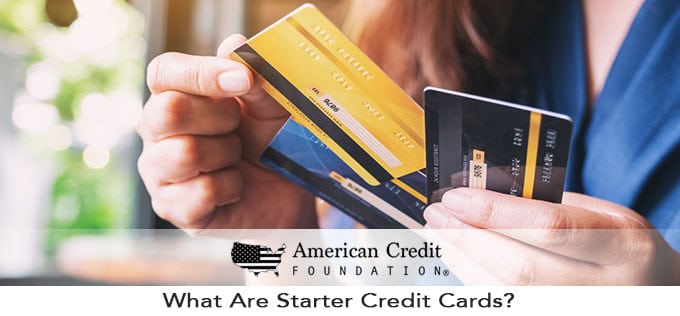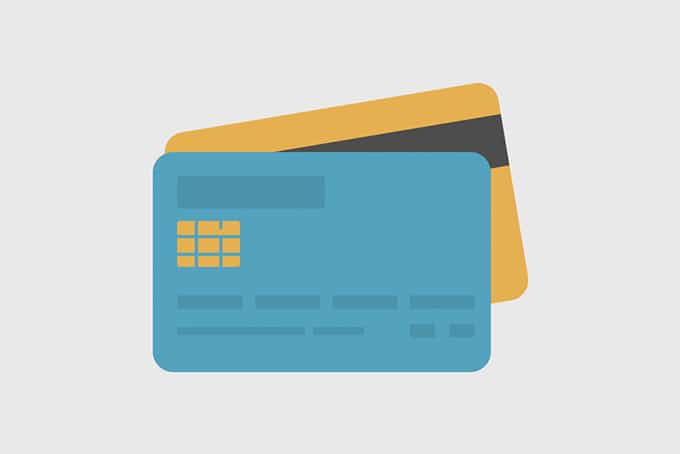
What are starter credit cards? In today’s economy, having good credit is about more than just being able to borrow money. In fact, credit checks are regularly required for lease approvals, with utility companies, and even as part of the job application process.
While most people know that credit scores are a factor in determining interest rates on mortgages, loans, credit cards, and other significant financial commitments, it is important to also remember that security deposits on rentals, upfront utility deposits, and even the amount you pay in rent can all be affected – either positively or negatively – by your credit score.
The big surprise to many consumers is that little or no credit is often as much a detriment as bad credit. Even if you’re able to get approved for that lease, home, or car, you will likely pay higher rates and fees that could easily spin into a cycle of long-term debt.
But how do you go about building credit if you need credit to qualify for credit in the first place? This seeming paradox is a common challenge for young adults and new graduates preparing to move out on their own for the first time. If getting an apartment is dependent upon a good job, which is dependent upon good credit, where do you even start?
One answer is to start building your credit well before you actually need it. A good way to do that is with something called a “starter credit card.” These credit cards were developed especially for new cardholders and offer some unique new-user features for young people, inexperienced borrowers, and those with little or no credit.
3 Basic Types of Starter Credit Cards
1. Secured Credit Card
This card is just what the name implies: a credit card with a balance that is secured by an initial opening deposit. The credit limit on the card is typically equal to the amount of the security deposit, so the risk for the lender is very low. These cards are typically fairly easy to get, but the downside is they often charge annual fees, and they don’t come with a lot of perks.
This card’s purpose is to help you build credit and instill the habit of paying off credit card bills at the end of every month. If you handle the financial responsibility well, your bank will likely convert the card over to an unsecured card after a specified period of time and return your deposit, which would be a real boost to your credit score.
A secured credit card is a safe way to learn responsible credit card habits – because you’re not able to charge more than what is held by your security deposit, you can’t get yourself into significant debt – while simultaneously building credit.
2. Student Credit Card

This type of credit card is offered primarily to college students and those in occupational preparatory schools. You can apply for this card with or without proof of income and with very little reported credit history.
These cards are unsecured, so they do not require a security deposit. They usually don’t have an annual fee, but they do often offer perks like cash back on purchases of everyday items.
These cards are meant to build credit, not to build debt. Without good habits, students can often get into debt trouble before even graduating from college. It is very important to handle these cards responsibly: Only charge what you have the ability to pay off entirely at the end of the month, and always pay your bills on time. Taking these steps with a student credit card will put you on a solid credit foundation by the time you finish college.
3. Unsecured Credit Card
What are starter credit cards to use if you don’t qualify for the first two options? For those with no credit or even bad credit who want to build better credit, but do not qualify for the other two options, an unsecured credit card can be a useful tool. Many companies offer cards with low credit limits for people who find themselves in this particular situation.
These cards usually come with drawbacks such as high interest rates, annual or monthly fees, and even additional application fees. But if used properly – meaning you keep your balance low and you pay off the balance at the end of each and every month – the interest rate becomes a non-issue as you’ll never have to pay it.
No starter credit card will have ideal terms. If you don’t yet have credit or you have less-than-perfect credit, you aren’t eligible for the best terms just yet. The purpose of a starter card is to build enough credit that you will be eligible for better terms, better interest rates, lower deposits, and quite possibly even a better job, so the payoff is worth the cost.
Building credit just takes time, but there are a few things that can help you make the most of that time and speed up the process. A starter credit card could be one of the tools in your credit building toolbox. If you have questions about the type of starter card that is right for you, or if you would like to discuss other ways to build your credit, contact one of our experts at American Credit Foundation today to explore your options.